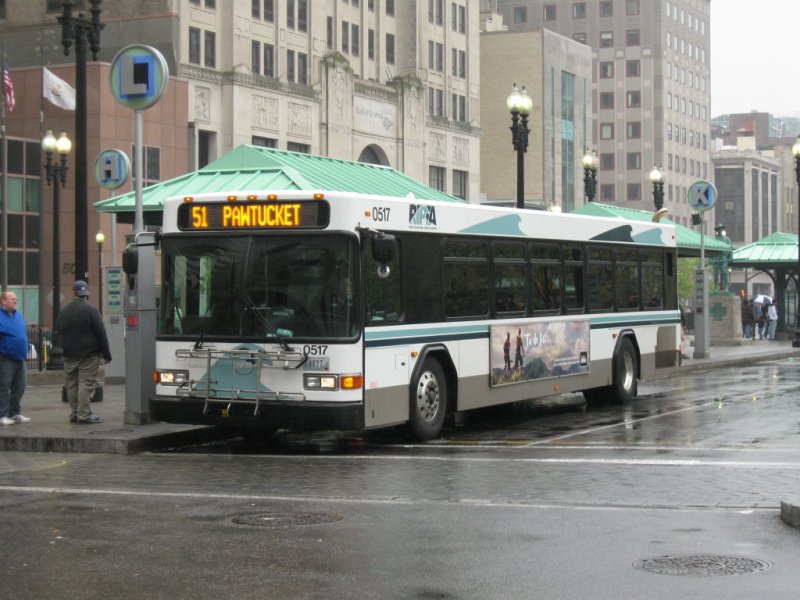Political leaders in Rhode Island want to cut the state's car tax -- the only question is how much. Governor Gina Raimondo has proposed a 30 percent cut to the tax, which is assessed annually and based on the value of the vehicle, while Rhode Island House Speaker Nicholas Mattiello wants to eliminate it altogether, calling it "regressive."
The "regressive" label often gets trotted out by proponents of cheap motoring, whether they're opposing a gas tax, tolls, or car fees. The problem with this argument is that many poor people don't own cars and are harmed by a transportation system that prioritizes driving instead of transit.
A real progressive tax plan would raise more revenue from driving and invest in transit, writes James Kennedy at Transport Providence, while boosting the state's match of the Earned Income Tax Credit. What Raimondo and Mattiello are proposing instead, he writes, is a windfall for people who own expensive cars:
One thing people say which is partially true is that $144 makes more difference to the budget of a person with a $10,000 car than $1,764 makes to the budget of a person with two $50,000 BMWs in the driveway. And that's true, but the problem with that logic is a) Why are we giving such a large tax cut to the $100,000 car owner in order to achieve that? and b) Why did we choose the car tax as the locus of our tax cuts in the first place?
People who own the most expensive cars get by far the most tax cut. For reference, cities like Providence have a 22% non-car household rate. Neighborhoods like Olneyville are above 40% non-car owning. So though some poor people struggle with the car tax, cutting the car tax is a poor way to reach all poor people, and manages to give a disproportionate amount of money to the well-off...
The Rhode Island Speaker of the House, Nicholas Mattiello, proposes a particularly expensive solution: he calls for getting rid of the car tax entirely. Based on current year revenue, that would cost $215 million a year.
Doubling RIPTA's state operational funding* would cost $47 million a year. We could quintuple (x5) the state aid to RIPTA using less funding than the Speaker's car tax proposal. We'd have enough to fund Governor Raimondo's free college plan and the quintupling, and we'd still be cheaper than the RI Speaker's plan.
But even Governor Raimondo's plan comes in at almost $70 million (take $215 million and multiply by 0.3, get $64.5 million).
77% of Rhode Islanders live within a ten minute walk of a bus, but most bus trips suck in Rhode Island. By making buses more frequent, and by modifying RIPTA's service map so that it has an everywhere-to-everywhere grid, we can allow far more people in Rhode Island to use transit. Right now we're below the national average (and the U.S. is a not very transit-y country to begin with) despite being the second densest state in the country.
More recommended reading today: Green Caltrain reports that Santa Clara keeps killing proposals for walkable development, raising more questions about the value of a potential BART extension. And Plan Philly sizes up the city's new Vision Zero action plan.




